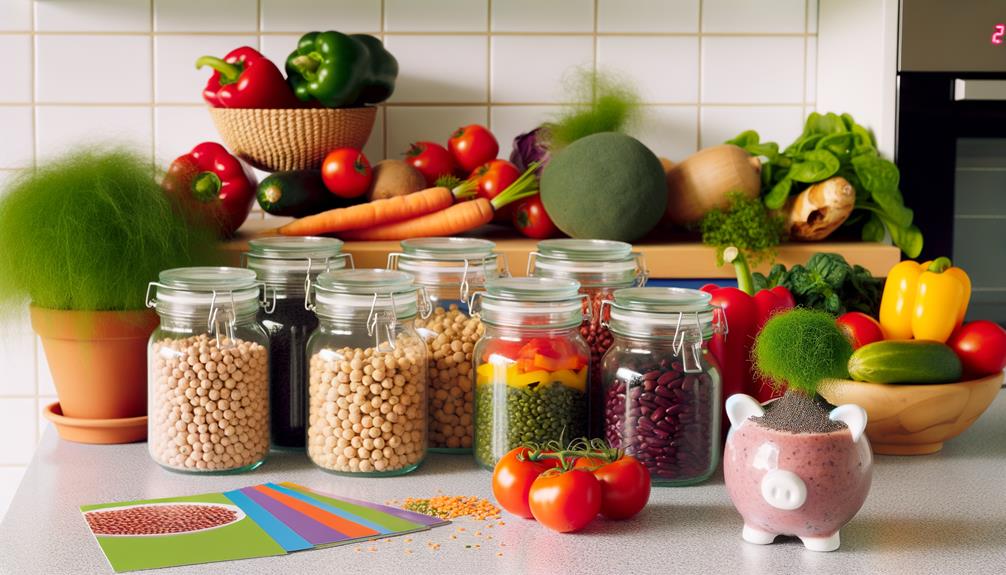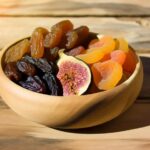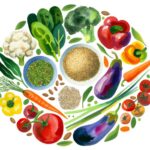In an age where your smartphone is smarter than yesterday’s supercomputers, it’s ironic that eating habits rooted in ancient traditions can be a modern challenge, especially when you’re watching your wallet. You’ve likely heard that a plant-based diet can be a costly affair, but what if you could sustain this healthy lifestyle without breaking the bank? By embracing the art of meal planning and mastering the craft of seasonal shopping, you can infuse your life with a diverse array of nutrient-rich foods while still keeping an eye on your finances. Imagine filling your plate with a vibrant tapestry of fruits, vegetables, and whole grains that don’t cost the earth—literally and figuratively. Stay tuned to uncover the secrets to thriving on a plant-based diet that respects both cultural wisdom and the contemporary need for frugality, and learn how to turn what seems like an oxymoron into your everyday reality.
Key Takeaways
- Prioritize whole foods: Choose fresh, unprocessed plant-based foods and incorporate a variety of fruits, vegetables, whole grains, and legumes for maximum health benefits.
- Master meal planning: Utilize frozen produce, buy beans, grains, and seeds in bulk, and preserve food to save money, reduce waste, and prepare budget-friendly plant-based meals.
- Embrace seasonal shopping: Save money by shopping for fruits and vegetables during their peak seasons, explore recipes that highlight seasonal ingredients, and stock up on low-priced produce to freeze or can.
- Leverage bulk buying benefits: Reduce costs and waste by buying grains, legumes, and seeds in bulk, enjoy longer shelf life, diverse meal planning options, and make a positive impact on the planet by choosing bulk items over packaged ones.
Prioritize Whole Foods
Embracing a plant-based lifestyle, it’s essential to focus on whole foods, as they’re the building blocks for a nutrient-rich, cost-effective diet. When you’re choosing what to put on your plate, remember that fresh, unprocessed plant-based foods offer the most benefits, both for your body and your wallet. By incorporating a variety of fruits and vegetables, you’re not only supporting your health with a spectrum of vitamins and minerals, but you’re also practicing a form of compassionate consumption that extends to the world around you.
Stock your kitchen with staples like brown rice, whole grains, and legumes, which are cornerstones of a wholesome diet. These foods are not only affordable but packed with fiber and protein, keeping you full and energized to serve others effectively. Don’t overlook the value of frozen produce and canned beans; they’re convenient, budget-friendly, and have a long shelf life.
Furthermore, making your own plant-based milk and utilizing every part of the plant, from stem to scrap, minimizes waste and maximizes your resources. Sprinkle in a variety of nuts and seeds for added nutrients and textures. By prioritizing whole foods, you craft a sustainable lifestyle that nourishes both you and the community you serve.
Master Meal Planning
Mastering meal planning is a strategic move that’ll save you both time and money, ensuring your plant-rich diet is as cost-effective as it is nutritious. When you’re eating vegan, every penny counts—buying organic is great, but balancing your food budget is vital. Here’s how to plan ahead and prepare Plant-Based Meals that are not only delicious but also kind on your wallet:
- Lean on Frozen Produce: Frozen fruits and veggies are a fantastic way to save. They’re picked at peak ripeness and are often more affordable than fresh, especially if the produce isn’t in season. Plus, they won’t spoil quickly, reducing food waste considerably.
- Buy in Bulk and Use the Whole Plant: Purchase beans, grains, and seeds in bulk to slash costs. Embrace a zero-waste approach by using every part of the plant. Veggie scraps can become a flavorful stock, while citrus peels can zest up dishes.
- Preserve What You Can: When you find a good deal, use preservation methods like freezing or canning to extend the life of your food. This allows you to use frozen goods in your meal plan and avoid the premium prices of off-season produce.
Embrace Seasonal Shopping
Shopping for fruits and vegetables during their peak seasons not only saves you money but also ensures you’re enjoying the freshest flavors in your plant-based dishes. When you embrace seasonal shopping at your local grocery or farmers’ markets, you’re choosing a path that’s both budget-conscious and rich in cultural insights. Fresh produce that’s in season is often abundant, which means it can cost less while offering the best taste and health benefits.
As someone dedicated to eating plant-based, you know that every meal is an opportunity to nourish your body and support your community. By selecting fruit and vegetables that are picked at their prime, you’re getting the most out of your plant-based lifestyle without breaking the bank.
Don’t hesitate to explore recipes that highlight seasonal ingredients. This not only maximizes flavor but also keeps your diet diverse and interesting. Take this chance to learn about the seasonal produce cycle in your area; it’s a rewarding way to deepen your connection with the food you eat.
Stocking up on seasonal produce when prices are low, and preserving it through freezing or canning, extends the benefits of your savvy shopping. Embrace the natural ebb and flow of plant life and let it guide your plant-based journey, making every meal a celebration of taste, nutrition, and community support.
Bulk Buying Benefits
Have you considered the financial and environmental advantages that come with bulk buying your plant-based essentials like grains, legumes, and seeds? When you buy these foods in larger quantities, you’re not just saving money; you’re also making a positive impact on the planet. Grocery stores offer a variety of bulk items, often more affordable and less processed than their packaged counterparts.
Here’s how you can leverage bulk buying benefits:
- Cost Efficiency: Bulk purchasing reduces the cost per serving, making plant-based eating much cheaper. You’ll notice that when you’re buying rice, quinoa, or lentils, the price per pound can be significantly lower in the bulk section.
- Waste Reduction: With bulk foods, you can buy only what you need, which means less food waste. Plus, you’re reducing packaging waste, aligning with a sustainable lifestyle that cherishes our planet’s health.
- Longevity and Variety: Foods included in bulk options often have a longer shelf life, allowing for diverse meal planning without frequent trips to the store. Stock up on different beans, nuts, and whole grains to keep your meals interesting and nutritious.
Homemade Staples Mastery
By learning to make your own plant-based staples, you’ll not only tailor ingredients to your taste but also cut down on costs and packaging waste. Meal prep becomes a craft of love, focusing on health and sustainability. Use the Whole of your food, transforming veggie scraps into rich vegetable stock, a process that speaks to both your budget and your desire to nourish those you care for.
Embracing homemade staples means your peanut butter is free from additives, your nut milk is fresh, and your vegan burgers are packed with the flavors you cherish. Make vegetable bases for soups and sauces with the same care you’d offer a guest in your home, knowing that every spoonful is infused with kindness and respect for the Earth’s resources.
Here’s a simple guide to start you off:
| Staple Item | Cost-Effective Tip |
|---|---|
| Plant-based milk | Soak and blend nuts or oats, strain, and save. |
| Vegetable stock | Simmer veggie scraps with herbs; freeze in batches. |
| Vegan burgers | Use beans and frozen fruit for bulk and sweetness. |
These small acts of culinary creation not only provide sustenance but also embody a dedication to a plant-rich life that’s as affordable as it is compassionate.
Frequently Asked Questions
Is It Possible to Live on a Plant-Based Diet on a Budget?
Yes, like a garden flourishing with care, you can thrive on a plant-based diet without breaking the bank. Seasonal shopping, bulk buying, and home cooking stretch your dollars, while community gardens offer free, fresh produce.
How Do You Eat Whole Foods Plant Based on a Budget?
You’ll save money by meal prepping with seasonal produce, buying in bulk, and choosing generic brands. Utilize community gardens, home cooking, and freezing leftovers. Share plants and explore foraging to enrich your diet economically.
Is It Cheaper to Eat a Plant-Based Diet?
Yes, eating plant-based can be cheaper. You’ll save by meal planning, buying in bulk, and choosing generic brands. Embrace seasonal eating, local produce from farmers markets, and garden growing to stretch your budget further.
How Can I Save Money Eating Plant-Based?
You can stretch your dollars like pasta dough by meal planning, bulk buying, and hitting local markets. Grow a garden, hunt for discounts, choose generic, and swap proteins to thrive on a budget.







